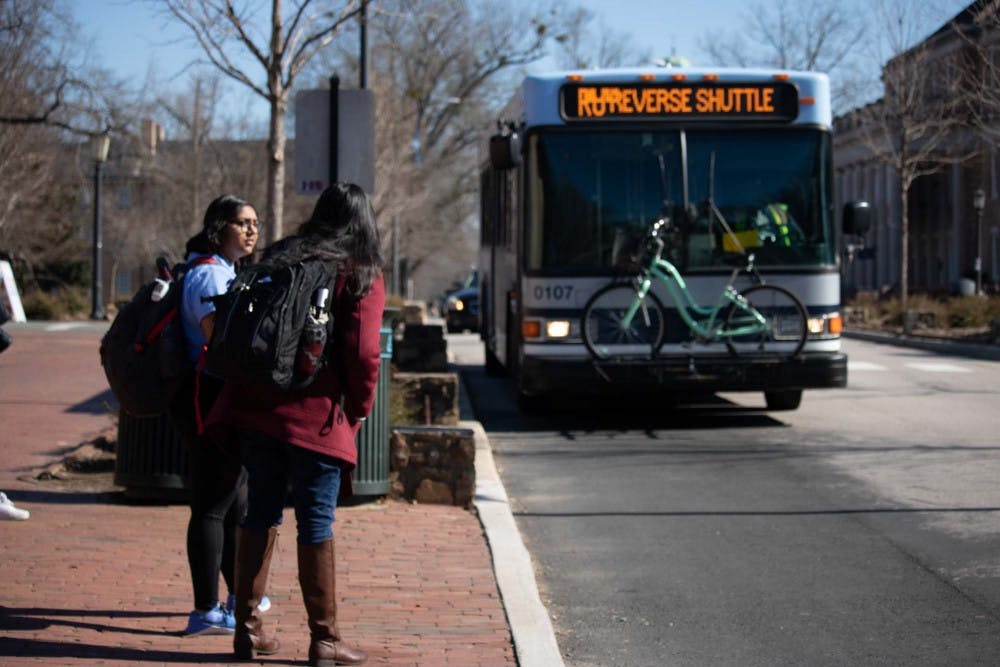Advertisements discussing politics, religion or other sensitive issues may soon be banned on Chapel Hill Transit buses.
Under the current rules adopted in 2012, the transit system is a “limited public forum" and any advertisements with political, religious or other potentially sensitive content must go through a review process with Town of Chapel Hill staff.
The Town of Chapel Hill’s attorney and transit director wrote a proposal to amend the current advertisement policy, which they said is flawed. They wrote that the review process involves a great deal of work on the part of the Town government, which runs the transit system.
Such issue-based ads make up a very small portion of transit ad revenue. Between the current rules’ adoption and January 2019, two had passed through the Town’s review process and run. The Town earned a total of $3,000 from them.
Besides the savings in time and resources, the report argued that barring such advertisements would make the transit system more welcoming to riders of all backgrounds, and avoid the appearance that the Town or its contractors endorse the ideas in an advertisement. It also stressed that such a lack of controversial material could help the buses remain attractive to commercial advertisers.
The discussion surrounding this policy started because the Town is considering making a private consultant responsible for managing advertisements on the transit system.
“I think if we’re not going be managing the content, then I think we want to make sure that we’re not putting on things that could be offensive or derisive to different groups, and really not leave it in the hands of a consultant to decide what would be appropriate or what wouldn’t be,” said Mayor pro tem and council member Jessica Anderson, who requested Town staff review the policy.
Anderson said that any offensive advertising might discourage people from using the transit system and unfairly impact those who can only use the transit system to get around.
“I think if we allow our buses to be places where people may see things that are what I view as not appropriate for a government to be basically condoning by allowing it on our buses, that’s going to be counter to our intent and our mission of getting people to use transit,” she said.




